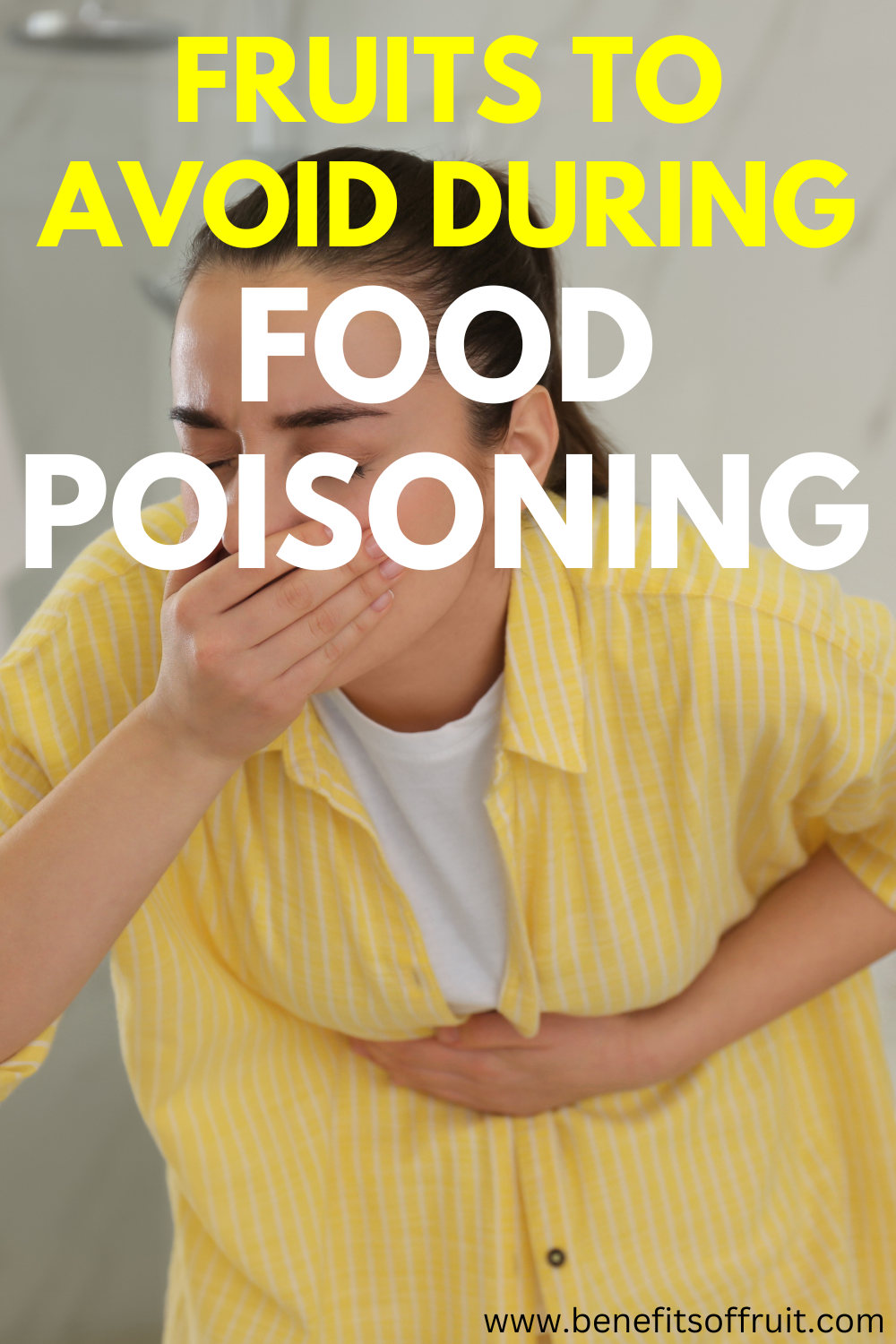Food poisoning can be an unpleasant and often painful experience. Characterized by symptoms such as nausea, vomiting, diarrhea, and abdominal cramps, it’s a condition that can seriously disrupt daily life. The causes vary but often stem from consuming contaminated food or beverages. While many types of food can cause food poisoning, recovery largely depends on what you eat after getting sick. Fruits, while generally considered healthy, may not always be suitable for those recovering from food poisoning.
To ensure a smooth recovery, it’s essential to make informed dietary choices. The focus should be on foods that are gentle on the stomach and help restore the body’s balance. This article will explore fruits to avoid during food poisoning and the reasons behind these recommendations.
Understanding Fruits and Their Effects During Food Poisoning
Fruits are rich in vitamins, minerals, and fiber, which generally benefit the body. However, some fruits can exacerbate food poisoning symptoms due to their acidity, fiber content, or sugar levels. Factors like high acidity can irritate the stomach lining, and excessive fiber can worsen diarrhea. Understanding these effects helps make better dietary choices during food poisoning recovery.
Fruits to Avoid During Food Poisoning
1.Citrus Fruits (Oranges, Lemons, Limes, Grapefruit)
Citrus fruits are known for their high vitamin C content and refreshing taste. However, they are also highly acidic, which can exacerbate nausea and gastrointestinal distress during food poisoning. The citric acid in these fruits can irritate the already sensitive stomach lining, leading to increased pain and discomfort. Although vitamin C is crucial for recovery, its acidic nature can cause more harm than good when consumed in excess during food poisoning.
2. Pineapple
Pineapple, like citrus fruits, is high in acidity and can irritate the stomach lining. It contains an enzyme called bromelain, known for its digestive properties. However, this enzyme can further irritate the stomach, making it unsuitable during food poisoning. The high acidity and digestive enzyme levels in pineapple can lead to increased nausea and gastrointestinal discomfort.
3. Apples and Pears
While apples and pears are known for their health benefits, their high fiber content can worsen symptoms of food poisoning. They contain both soluble and insoluble fiber, which can be hard on the digestive system when it’s already sensitive. Insoluble fiber, mainly found in the skins of these fruits, can lead to increased bloating and discomfort. Additionally, their natural sugar (fructose) can exacerbate diarrhea and cramping.
4. Berries (Raspberries, Blackberries)
Berries like raspberries and blackberries are high in antioxidants and vitamins. However, their high fiber and seed content can irritate a sensitive stomach. The seeds can be difficult to digest and may cause further gastrointestinal distress. Berries also contain significant acidity levels, which can exacerbate nausea and discomfort.
5. Stone Fruits (Peaches, Plums, Apricots)
Stone fruits such as peaches, plums, and apricots have high fiber and fructose levels. These compounds can worsen diarrhea and bloating in individuals recovering from food poisoning. The skin and flesh of these fruits can be difficult to digest, further irritating the stomach and intestines.
6. Melons (Watermelon, Cantaloupe, Honeydew)
Melons are known for their high water content, which generally helps hydration. However, in sensitive individuals, this high water content can lead to diarrhea and other gastrointestinal symptoms. Watermelon and cantaloupe, in particular, can cause digestive issues due to their water content and fiber. Melons also pose a potential bacterial contamination risk due to their thick, porous rinds, which can harbor bacteria if not washed properly.
Conclusion
During food poisoning recovery, choosing the right fruits is essential to avoid exacerbating symptoms and slowing down recovery. While fruits generally offer numerous health benefits, some can be counterproductive in this condition due to their high acidity, fiber content, or sugar levels.
